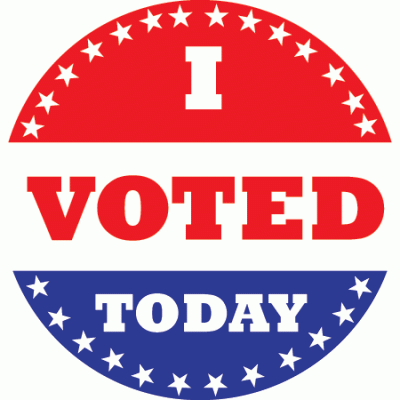The first large-scale experimental research on the political influence of social networks finds that Facebook quadruples the power of get-out-the-vote messages. While the single-message study produced a moderately successful boost in turnout (a 2.2% increase in verified votes), the most important finding was that 80% of the study’s impact came from “social contagion”, users sharing messages with friends who would otherwise never have seen it. This is the first definitive proof that social networks, as opposed to television or radio, have uniquely powerful political benefits. While Facebook is unlikely return the United States to the 80 percent-plus voting rates of the 19th Century, this study is an attractive selling point to campaigns and causes looking for a way to maximize their impact for little cost or effort.
Published in the latest edition of the prestigious science journal, Nature, the 61 million participant study randomly assigned all Facebook users over 18-years-old to see an “I Voted” counter at the top of their newsfeed with the number of total users who had voted on Nov 2nd, which had a link for more information about local polling places. Turnout was verified from a database of public voting records. Interestingly, the 3-pronged experiment displayed two types of “I Voted” messages, one with pictures of friends underneath and one without. Those who did not see pictures of their friends were barely affected by the message at all, “which raises doubts about the effectiveness of information-only appeals to vote in this context,” surmise the authors.
The study should be put in a bit of context, because it would be wrong to both assume that Facebook could have dramatic effects on turnout or assume that it’s limited to 2.2%.
The best get-out-the-vote practice, face-to-face canvassing, produces about an 8% bump in turnout. This is a far cry from when the United States had arguably the most active democracy in history. In the 19th century, locally-controlled government, rampant vote-buying, political festivals, and the robust culture of civic participation of post-Civil War America did more to boost voter turnout than all of the billions of dollars in modern campaigning could ever do (for more information, I recommend two excellent books, Why America Stopped Voting and Amusing Ourselves To Death). In other words, Facebook is potentially (very) powerful, but there’s a certain percentage of Americans who just don’t respond to modern campaigns, so the power of social networks probably has a ceiling of about 10% at best for presidential campaigns.
On the other hand, as Facebook bleeds into older demographics, campaign messages could have a much larger impact than the study found. Young people, who dominate social media, have a notoriously inconsequential effect on elections. Had no one under the age of 30 voted in 2008, Obama still would have won every state but two. Additionally, as researcher Professor James Fowler reminds me in an email, many of those targeted by the study were not registered to vote, could not be matched to voting records, or had already voted.
“We were intentionally conservative in our estimates published in Nature since we were testing scientific hypotheses. However, if we were to adjust for all these factors, I think for comparison to other GOTV [Get-Out-The-Vote] campaigns our effect size would be more in the neighborhood of 5% to 8% and we would find that the message actually got closer to a million extra people to the polls,” he writes
The likely upshot from the study is that Facebook may be able influence all the likely voters that would ordinarily cost a lot of money to reach. For instance, the entire 2008 presidential parade only boosted youth turnout by 2.1%, roughly the same amount that this single message-study did (of course, the study reached older demographics, as well).
A lot more research is needed to understand how Facebook could impact voting rates and engagement with causes. But, at the very least, Facebook could make it a lot easier and cheaper for campaigns and causes to reach all of the latent, civically active citizens waiting to make their impact on the world.
